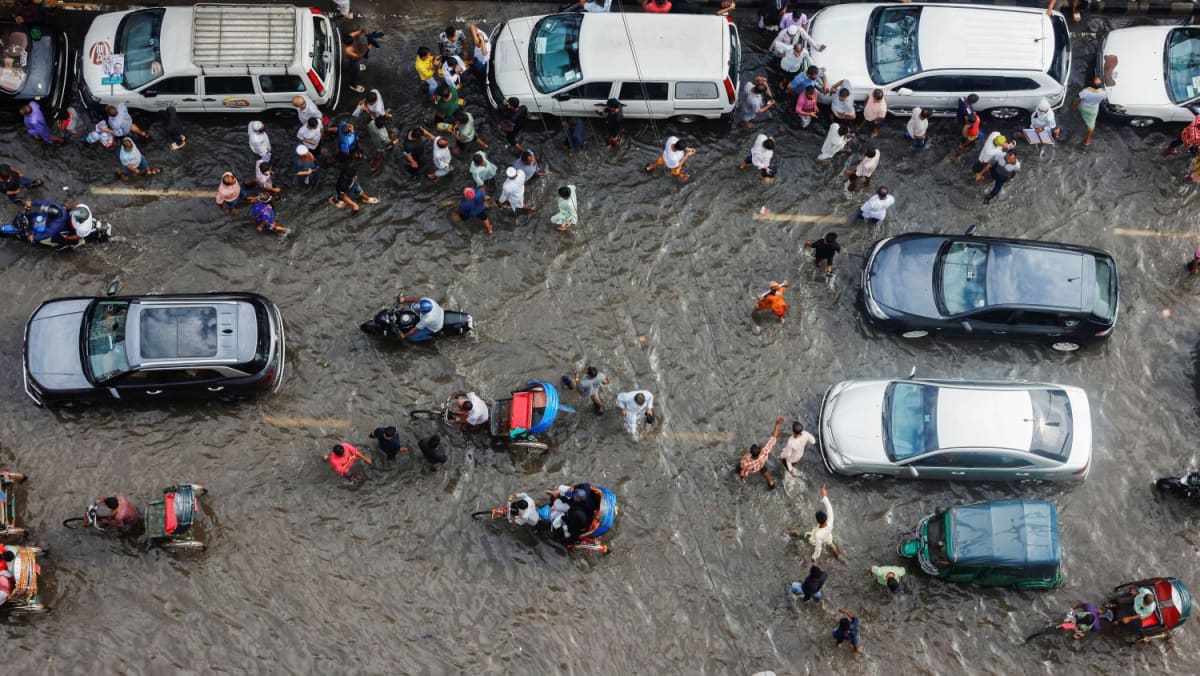
DHAKA (Bangladesh) — As Ripon Mondal’s family try to recover from the drought that ruined their watermelon crop in central Bangladesh last year, the 19-year-old college student fears that his father’s financial worries are just the tip of the iceberg.
“I can feel my father’s mental distress,” said Mr Mondal.
“He has to pay for our studies, and sometimes I feel terrible about the debts piling up.”
The family lives in a village in the Kamarkhola Union area, which is surrounded by four rivers, leaving them far from any mental health services – a reality faced by many people in Bangladesh, especially those in rural and remote parts.
“I would have to cross at least two rivers and travel a long distance to reach a hospital where I can find a psychologist,” Mr Mondal said.
As Bangladesh faces worsening climate change impacts on a warming planet – from droughts and floods to sea level rise and storms – health professionals and organisations in the country are increasingly concerned about deteriorating mental health.
Extreme weather and climate disasters can cause or compound anxiety and depression, for example, according to mental health specialists who say such conditions are poorly understood in Bangladesh and that there are far too few trained psychologists.
Nearly a fifth of adults in Bangladesh have mental health issues, found a survey conducted by the government in 2019.
In a first-of-its-kind study for Bangladesh – funded by the World Bank and published in the journal Lancet Planetary Health in February – researchers found that exposure to higher temperatures and humidity along with worsening floods raised the likelihood of people suffering from both anxiety and depression.
Yet the country of about 170 million people has just a few hundred mental health practitioners, according to Mr Syed Tanveer Rahman, a psychology professor at the University of Dhaka.
“When one steps beyond large cities like Dhaka, access to mental health care is still quite limited,” said Mr Rahman.
Officials at the National Institute of Mental Health did not respond to requests for comment on the situation.
The government has recognised the toll climate change can take on mental health, and its 2022 adaptation plan pledged to monitor the issue – with a focus on women and disabled people.
Mental health professionals, non-governmental organisations (NGOs) and even start-ups say they are trying to improve the situation – by using technology and training volunteers to help rural and isolated communities.
For example, Moner Bondhu is a for-profit mental healthcare platform which has partnered with the United Nations Development Programme to provide psychological aid to people in Dacope, one of the most remote and climate-vulnerable parts of the southern coast.
Disasters have now become so frequent in the area that residents do not have time to cope with the losses and damage incurred from one before another strikes, according to Moner Bondhu’s CEO Tawhida Shiropa, who founded the start-up in 2016.